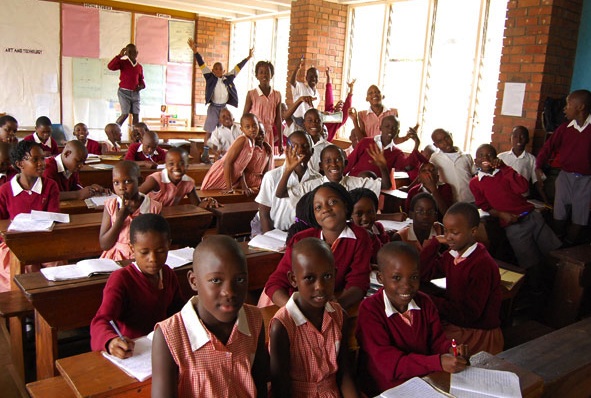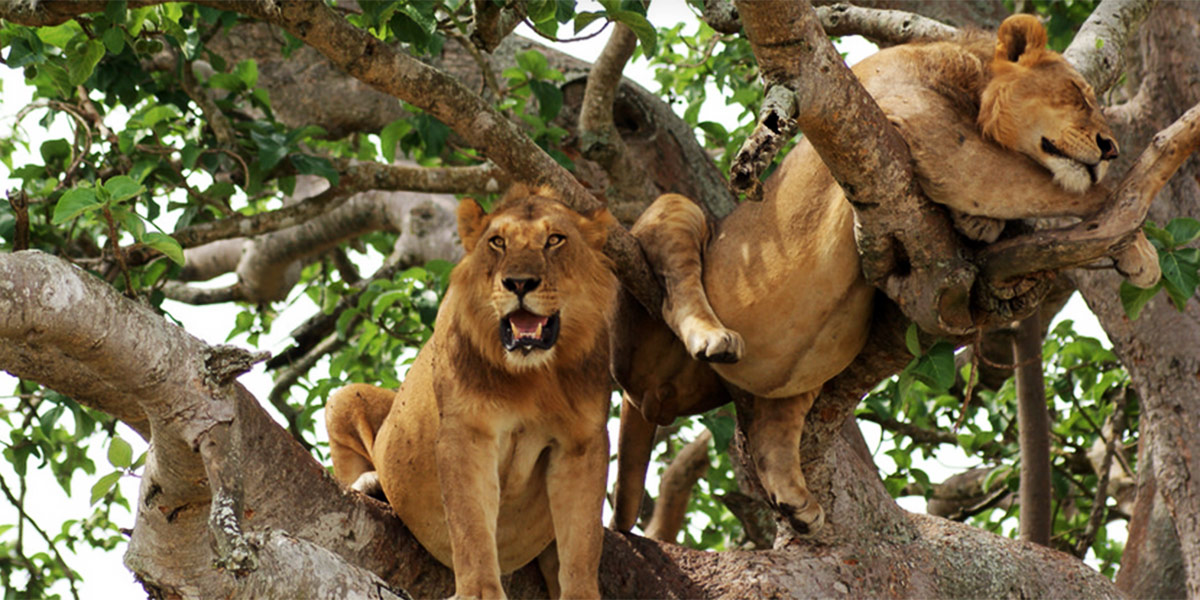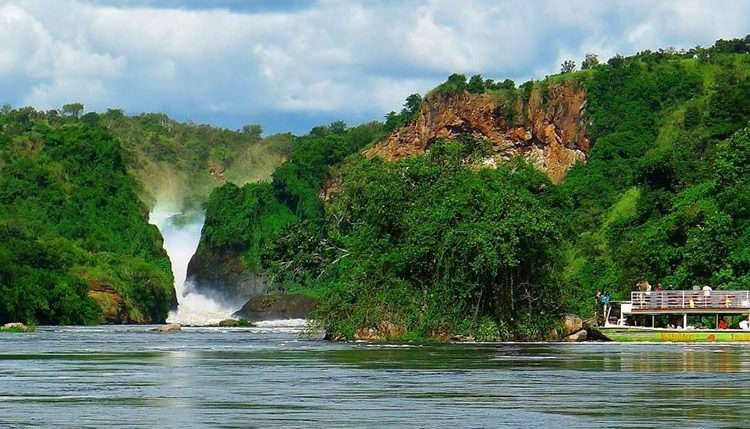Uganda is one of the most diverse and dynamic countries in Africa that considers education a basic human right. Promoting education has been viewed as a great initiative towards poverty eradication. The government is dedicated to providing equitable access to quality and affordable education to all Ugandans. From a 2018 Uganda Bureau of Statistics (UBOS) report, adult literacy rate for Uganda was at 76.5 %.
The system of education in Uganda has a structure of 7 years of primary education, 6 years of secondary education (divided into 4 years of lower secondary and 2 years of upper secondary school), and 3 to 5 years of post-secondary education. All throughout the levels in the education structure, modules are taught and assessed in English. The government of Uganda recognizes education as a basic human right and continues to strive to provide free primary education to all children in the country.
However, issues with funding, teacher training, rural populations, and inadequate facilities continue to hinder the progress of educational development in Uganda. Girls in Uganda are disproportionately discriminated against in terms of education; they face harsher barriers when trying to gain an education and it has left the female population disenfranchised, despite government efforts to close the gap.
The majority of literate Ugandans go through two basic levels of education i.e. primary and secondary schools and very few make progress to university and other tertiary institutions. The gap between primary and secondary school enrolments is very big, an indication that most Ugandans stop at primary level of education since very few join post-primary institutions a challenge majorly pointed to the financial difficulties in the country.
The Education Sector in Uganda has government and private sector as the key players. The sector has both formal and non-formal educational institutions spanning all educational levels. Uganda has the following levels of education:
- Pre-primary;
- Primary;
- Secondary;
- Business; Technical and Vocational Education and Training (BTVET)
- Higher Education levels.
- Adult Education
The education sector includes public, private and community Physical Education and Sports institutions.
Formal education system
Uganda has a formal education system based on a 7-4-2 formula. Formal education starts with seven years of primary education followed by four years of Ordinary Level secondary and two years of A’ Level secondary education. The Advanced level secondary education is followed by a 3-5 years of University level education. This structure has been in existence since the country achieved political independence in 1962. At each level of the education system, the country produces a number of graduates but the numbers are reducing as one goes up the formal system due to a number of reasons including challenges of affordability and limited capacity intake of education establishments of higher learning.
Non-formal education system
The non-formal education system grooms people to become socially acceptable and responsible adults. The first transfer of knowledge and skills is done at home where children are taught to carry out various activities including cooking, cleanliness, building, ethics, gardening, respect for elders and discipline among others. The non-formal education is about the education, learning and training which take place outside recognized educational institutions.
Early Childhood Development and Nursery
National Integrated Early Childhood Development Policy and Action Plan of Uganda was developed to guide the process of developing the full potential of children from conception to 8 years of age. Therefore the parents and caregivers are expected to help the children grow and thrive physically, mentally, emotionally, spiritually, morally and socially. Early childhood centres include pre-school, nursery schools and day care centres.
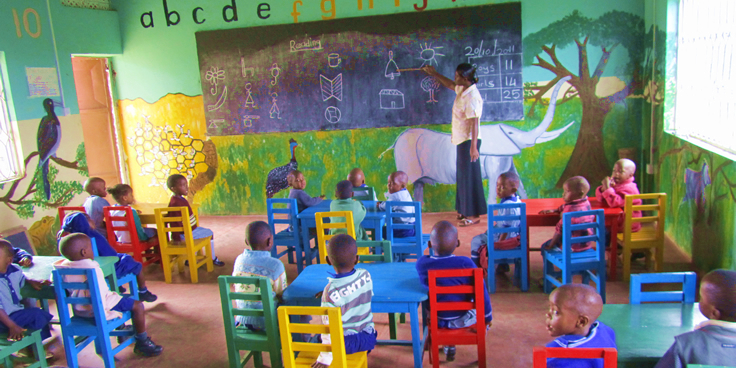
Primary education
Uganda has seven years of primary education and the legal age for school entry is six. According to Arbeiter and Hartley, classes have between 70 and 150 pupils and there is over-age studying in all schools. Moyi explains the issue of many classes having the inappropriate age of pupils as having been driven by late enrolment or grade repetition, which in turn is caused by the poor quality of education.
Government aided primary schools have a system of education known as Universal Primary Education (UPE) aimed at seeing every Ugandan child attend this level of education. The system has existed since 1997 and its introduction was the result of democratization and open elections, as there was great popular support for free education. Despite its promising boosts in enrolment, issues with funding and organization have continued to plague the UPE.
Secondary education
The structure of Uganda’s secondary education system follows the education system of its former colonial masters, Britain. It is divided into the Ordinary level and Advanced level. Lower secondary (Senior 1 – Senior 4) consists of 4 years of schooling at the end of which students undertake Ordinary-level exams (O-level) in at least 8 subjects with a maximum of 10 subjects. Upper secondary (S.5 – S.6) consists of 2 years of schooling at the end of which students sit Advanced-level exams (A-level) in at least 3 subjects and an additional subsidiary.
Three-year technical schools provide an alternative to lower secondary school. Alternatives for graduates from lower secondary school include: 2-3 year Technical institutes; 2 year Primary Teacher Colleges (PTC); Department Training Colleges (DTCs) and Upper secondary schools.
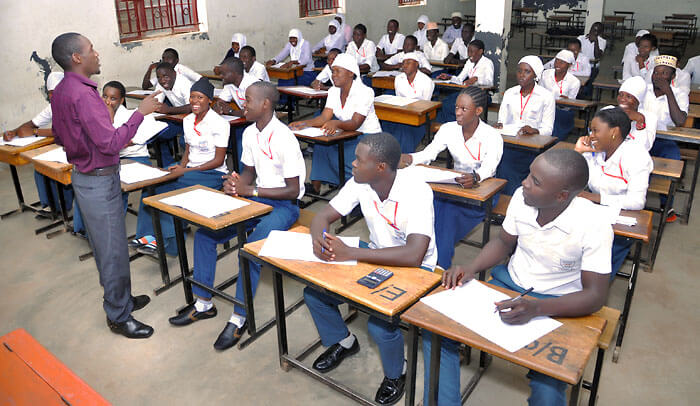
Post-secondary education
Although 60,000 to 70,000 students in Uganda leave secondary school each year qualified to go on to higher education, about 35 per cent of them (at most 25,000) are able to find places at the limited number of institutions. The majority of students go to universities, both public and private. Makerere University in Kampala has the largest percent of the total student population in Uganda’s universities. The remainder are distributed among other universities and more than 20 private universities and a smaller number of non-university institutions.
Vocational and technical education
Vocational and Technical Education has grown and received more recognition in Uganda with the increasing preference for hands-on graduates for different job opportunities. The UN has led efforts to support this form of education through the UNESCO subdivision International Centre for Technical and Vocational Education and Training (TVET). Three-year technical schools provide an alternative to lower secondary school. Alternatives for graduates from lower secondary school include: 2-3 year Technical institutes; 2 year Primary Teacher Colleges (PTC); Department Training Colleges (DTCs) and Upper secondary school.
Adult Education
In the Ugandan context, adult education is defined as all learning processes, activities or programs, intended to meet the needs of various individuals considered by society as adults, including out of school youths forced by circumstances to play the roles normally played by adults. The country has many learning centers categorized in form of Community based organizations to fully constituted Adult education Centers. At these centers, adults are taught deeply as far as core reading and writing skills.
International school education system
The international school education system in Uganda follows a globally recognized curriculum and teaching approach, catering to a diverse community of students, including expatriates and local families seeking a high-quality education. These schools often offer programs such as the International Baccalaureate (IB) or Cambridge International Examinations (CIE), providing a well-rounded education with an emphasis on critical thinking, intercultural understanding, and holistic development. International schools in Uganda aim to prepare students for international universities and careers while fostering a multicultural environment that promotes global awareness and collaboration.
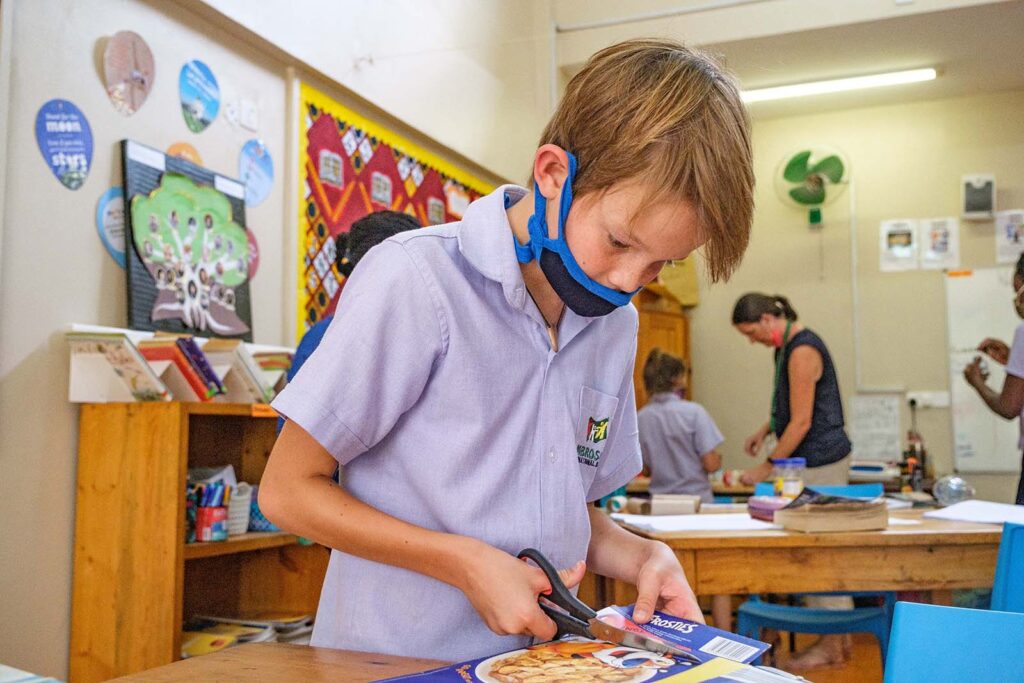
About Memoir Uganda – Showcasing Uganda
We are a comprehensive tourism and travel media company unleashing information about Uganda. We offer, among others, an all-inclusive guide on everything Uganda such as itineraries, consular information, timely and updated tour and travel news and general information about visiting and living in Uganda.
To us, Uganda is more than a tour destination. It is our homeland. Our knowledge about Uganda is ocean deep and we love showing the country’s splendid beauty to the world. We aim at sharing and showcasing Uganda to the tiniest bit, better than anyone else.
Our Memoir Uganda magazine showcases Uganda’s diverse potential in detail that is often left out and unknown. You ought never to miss a copy. We robustly believe that traveling should make the world a better place for everyone.



